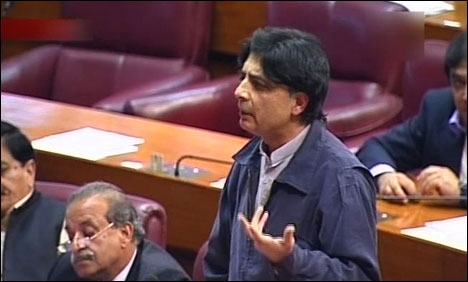There’s a common joke that I hear from certain friends who take a cynical view of the world. “Democracy: Where any two fools can outvote a genius”. This is one of those jokes that sounds much more clever than it really is. For one thing, it is often a fool who thinks he’s a genius. More importantly, though, that’s not how democracy works anyway. Democracy isn’t three people trying to decide what to eat for dinner. In the case of parliament, for example, it’s hundreds of people representing all parts of society coming together to discuss, debate, and decide answers difficult questions. Most recently we saw this in action as the different parties were able to find common ground and make a unanimous agreement on the requirements for reengagement with the US.
In this example, the process was not fast or easy. The majority party did not simply over rule the other parties. Neither did the opposition parties use the opportunity for point scoring. Actually, all parties came to the table with their priorities, and where there were differences, debates were had, compromises made, and a unified policy worked out.
Coalition parties did not sell anything to America, but made a rational decision based on what is best for Pakistan. And even this was not an easy task. JUI-F boycotted the proceedings until Fazlur Rehman was satisfied following a series of meetings with President Asif Ali Zardari, PCNS Chairperson Senator Raza Rabbani and Ambassador Sherry Rehman. Opposition parties were not ‘friendly opposition’ but held out until a compromise could be reached that satisfied all parties. The Americans had to wait, but so what – this was our chance to make our own policy and set our own boundaries for engagement. And we did.
Few reports explain this better than one in The News.
The sources said Pakistan’s Ambassador to US Sherry Rehman has played significant role in engaging various political groups for bringing them on consensus for the resolution. She was present in the Prime Minister Gallery in the Parliament when the resolution was put for the verdict of the house. Opposition Leader Chaudhry Nisar Ali Khan, in his speech, talked high of her role and pointed out her presence in the gallery who was their colleague as member of the National Assembly for about four years. Prime Minister Gilani was the first to thump the desk and later joined by the members of the both sides.
The leaders of both sides of the divide paid rich tribute to the sagacity of the ambassador. A stalwart of the opposition, Ahsan Iqbal, pointed out that the recommendations have no mention of ties with Gulf Cooperation Council (GCC) member countries. Senator Raza Rabbani, who tabled the report, conceded the error and the GCC countries were also enlisted which are the major source of valued remittances.
The sources said the Nato supply had become compulsion since it involved 48 countries which are present in Afghanistan in various capacities. Pakistan has been facilitating the countries for about 10 years without any remuneration and now they are planning to leave the area, it would not be in the interest of Pakistan to deny them the facility. The point was accepted by the committee, the sources said.
Unlike under past governments when secret deals were worked out behind closed doors, opposition parties silenced, and the people kept in the dark about reality, this time we had an open and honest debate about issues facing the nation and worked through our differences to decide a consensus approach that respects all parties’ concerns. As a result, the recommendations have the full backing of parliament and not just the ruling party. Many people said it could not be done, that politicians from different backgrounds could not work together to form a unified policy for the nation. Today, it is those people who look like fools. Because it is now proven that given the chance, democracy works.
![]()






